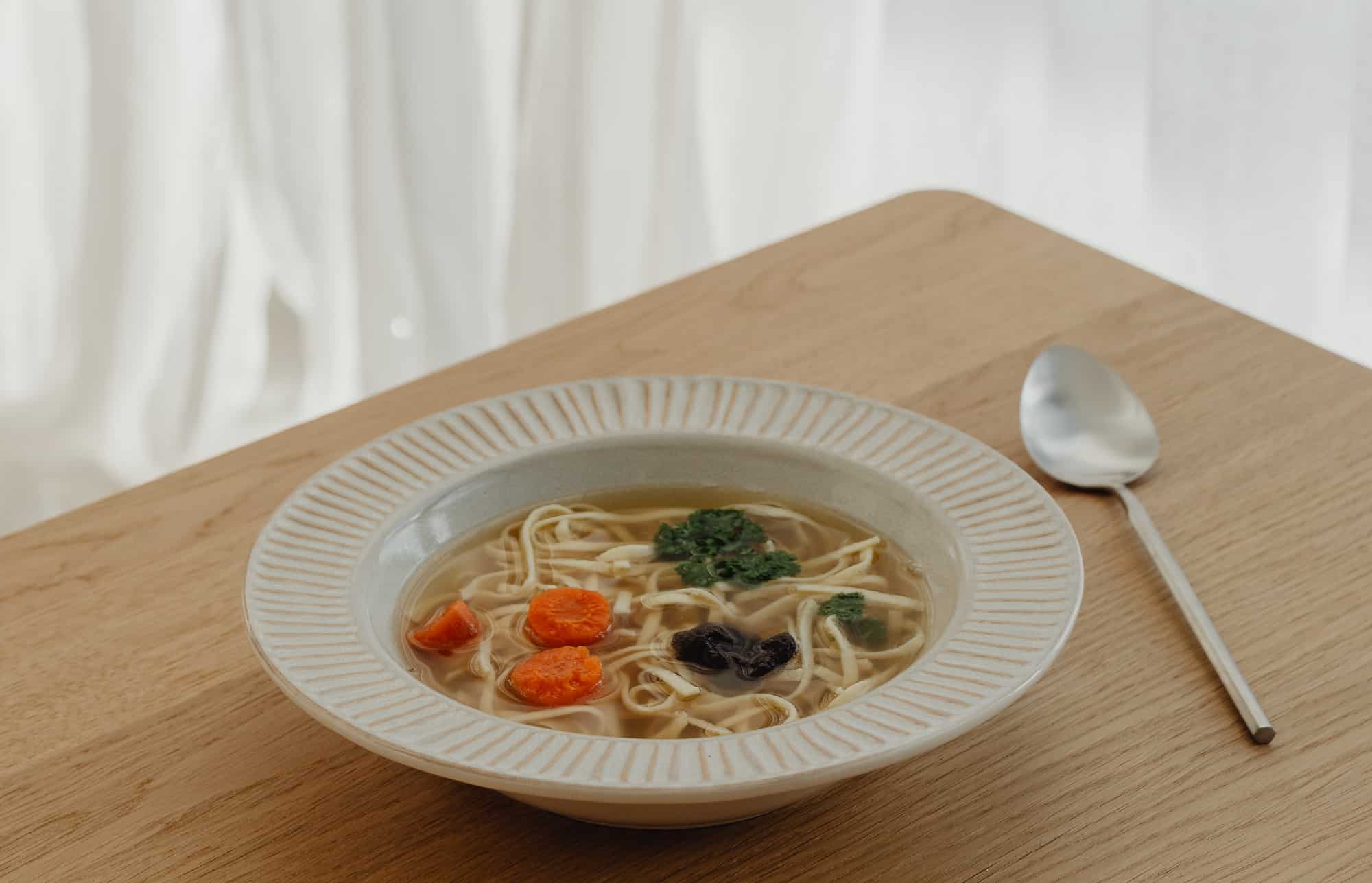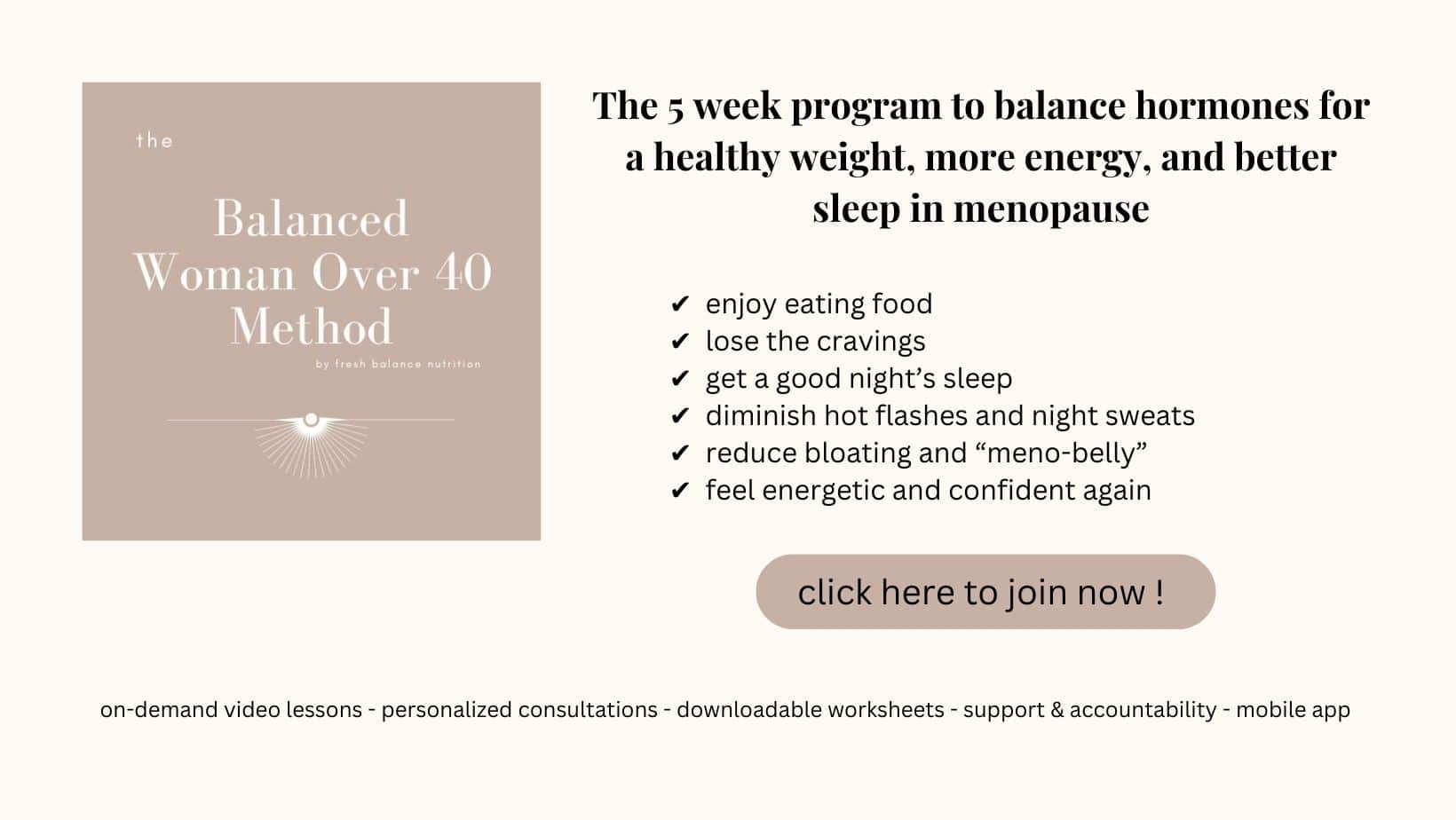Ozempic is helpful for weight gain in menopause. However, semaglutide medications like Ozempic can also come with unpleasant side effects. One of the most common Ozempic-related side effects is nausea. About 20% of people report feeling nauseated while taking Ozempic.
If you’re experiencing nausea, don’t give up on the medication until you’ve tried to manage or avoid this side effect. There are several ways to get Ozempic nausea relief.
Why am I feeling nauseous on Ozempic?
Nausea is a very common side effect of Ozempic and other semaglutide medications. It usually occurs when you start on the meds or when the dose is adjusted. The good news is it can subside gradually as your body gets used to the medication.
One of the things Ozempic does is slow down the time it takes food to move through your digestive tract. This can also make you feel queasy. It is difficult to eat the nutritious food your body needs while you are feeling poorly.
What can I do for Ozempic nausea relief?
Gradual medication dosing
First of all, always let your doctor know if you are struggling with nausea on Ozempic.The way the medication is dosed can help with managing nausea. It is recommended to slowly increase the dose over time. This helps your body gradually adjust to blood sugar shifts and effects on the GI system.

Small meals
Eating smaller meals including some protein can really help because you are not filling up your stomach. This will help stabilize your blood sugar through the day and settle your stomach. You will probably need to eat more frequently, if you can, in order to get the protein and other nutrients your body needs.
Steady your blood sugar
One of the ways Ozempic works is to reduce your appetite, so the food you do eat should be planned carefully. Some foods can spike your blood sugar and cause some stomach upset. Pass on sugary foods and drinks that spike blood sugar which leads to feeling nauseous.
High fat foods
Avoid fatty foods or fried foods. Fat takes longer to digest so it empties from your stomach slowly. It may help to hit pause on avocados, nuts, and french fries.
Foods with strong seasonings or smells
Strong flavors and smells may be unpleasant until your nausea goes away. Choose some bland foods like yogurt, bananas, or rice.
High fiber foods
This isn’t the time to increase fiber. Remember fiber can slow digestion which is great when you’re feeling good. Reintroduce healthy, high fiber foods when you’re feeling better.
Alcohol
Beer, wine, and liquor can exacerbate nausea. Alcohol also causes shifts in blood sugar which may not make your stomach feel great.
Plan ahead
Prep some food before nausea sets in if possible. Prior to starting on weight loss medication or before a change in dosage, get some food in the fridge. It’s no fun to cook when you’re feeling poorly. You’ll find it easier to eat small portions of healthy food if you’ve packed containers of foods like soup, broth, crackers, chicken strips, or baked apples. You’ll be set to nibble a little throughout the day to dampen any nausea.

Stay hydrated
Try not to get dehydrated. Sip on ginger tea which can help you feel better. Some people can tolerate icy-cold water instead of warm drinks so give that a try. But avoid filling up your stomach with liquids at meal times.
What if I want to stop taking weight loss medications?
You may find the side effects overwhelming and decide to stop your medication. You will still be able to rely on some of the weight loss strategies that you were using along with Ozempic even if you stop taking it.
There is a good chance you will regain weight after stopping the medication unless you have changed your nutrition and lifestyle habits. This is why it is so important to focus on behavior change and preserve your muscle by eating enough protein and doing your strength training.
What else will support losing weight in menopause?
Well-balanced nutrition
The Mediterranean diet is a good place to start. This anti-inflammatory style of eating has been proven by many studies that show benefits for women. It is made up of proteins low in saturated fat and antioxidant-packed vegetables and fruits. It also features beans, lentils, and whole grains high in fiber.
Movement and strength training
Cardio exercise gets your heart rate up and boosts cardiovascular health. As a bonus it also helps with sleep, brain health, and mental health. But don’t leave out strength training. It helps maintain muscle mass which we naturally lose during menopause. It keeps bones strong and protects against osteoporosis. Strength training helps keep you at your healthy weight by increasing your metabolic rate.

Stress management
Cortisol is the hormone our body uses to respond to stress. Cortisol levels increase in menopause and with age. Chronically high levels can lead to insulin resistance which can lead to weight gain. Stress reduction strategies like walking, yoga, and trying some supplements can help you manage stress.
Quality sleep
When we don’t sleep well we suffer hormonal fluctuations, including higher cortisol levels. The hormones that control hunger signals, ghrelin (increases our appetite) and leptin (causes feelings of satiety), become disrupted after poor sleep and can lead to patterns of overeating.
Are there any menopause supplements for weight loss?
Most supplements you hear about boasting dramatic results probably won’t be very effective. This is particularly true if you aren’t also eating well and exercising.
There is one plant-derived supplement called berberine that has some solid data behind it. Berberine can be effective in controlling blood sugar and improving insulin sensitivity. It works in a way similar to the drug metformin. Always discuss supplements with your doctor before taking to make sure it is safe for your personal situation.
If you have more questions about how to manage your nutrition while taking Ozempic or other weight loss medications, I created a guidebook just for you – The Semaglutide Diet Plan. You can find out how much protein to eat, what to do if you aren’t losing weight, and more.








